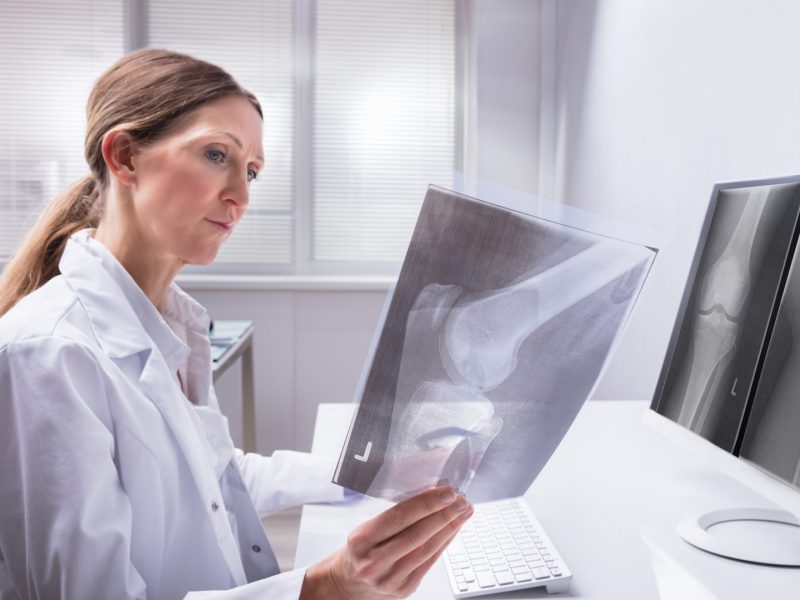In this information sheet we explain what an expert opinion is, why it is used, what liability and quantum evidence mean and the overriding duties of experts to the court.
Who is properly considered an expert in medical negligence matters?
An expert is an independent person with specialist knowledge who is requested, by a party to the proceedings or the court, to provide opinion evidence on aspects of the case.
Experts used in medical negligence cases are usually medical practitioners with considerable training and expertise in their specialist field. However, it is often necessary to obtain expert evidence from the allied health profession (such as occupational therapists, physiotherapists etc) and from forensic accountants to calculate financial loss suffered.
Why is expert evidence required in a medical negligence claim?
It is a mandatory requirement under the Uniform Civil Procedure Rules that any person commencing professional negligence proceedings (including medical negligence) has supporting written expert liability opinion.
What does Liability and Quantum evidence mean in a medical negligence claim?
Liability evidence assists the court in deciding whether a doctor, hospital or health care provider should be held legally responsible for a person’s death or injury. Quantum evidence is required to prove the extent of the loss or damage suffered by the plaintiff.
What is the process of obtaining expert evidence in medical negligence cases?
Expert evidence in medical negligence cases is in the form of a written report responding to questions which have been posed by the instructing solicitor.
First, solicitors provide all relevant documents and a written summary to the expert and ask the expert to undertake a review. Typically, the expert will then participate in a teleconference to discuss the issues and give a verbal opinion. This will allow the solicitor to properly advise their client about the prospects of the claim and whether to call for a written report to be produced.
Where the expert is supportive of the case, the solicitor will request that a report be prepared.
Where the matter proceeds to a court hearing, an expert may be subpoenaed to attend Court and be questioned about his or her opinion.
Who can give expert evidence in a medical negligence claim?
An expert can only give opinion on matters that fall within his or her field of expertise. For example, a general practitioner would not be the appropriate person to provide an opinion on an allegedly negligent hip replacement by an orthopaedic surgeon.
What type of liability evidence is needed to successfully prove a medical negligence claim?
Expert liability evidence assists the court in deciding whether a doctor, hospital or health care provider should be held legally responsible for a person’s death or injury. Importantly, the Court will need assistance in drawing legal conclusions on whether the doctor, hospital or health care provider:
– failed to exercise reasonable care and skill at the time that the medical services were rendered (breach of the duty of care); and
– on the balance of probabilities, the breach of the duty of care caused the death or injury (causation).
What does ‘Quantum’ evidence mean in a medical negligence claim?
Once a plaintiff has supportive expert liability evidence, he or she will need to prove the extent of the loss and damage suffered (harm). Unless a plaintiff can prove that they have suffered harm, they will not be entitled to compensation.
When determining the appropriate amount of compensation to award the plaintiff in a medical negligence claim, the court is assisted by expert opinion. A quantum expert assesses the degree of harm suffered by a plaintiff, any likely future needs resulting from the harm suffered, from which a monetary value is applied.
What do Single, Joint and Conclave experts mean in a medical negligence claim?
In medical negligence cases, generally, both the injured party and the doctor, hospital or health care provider will obtain opinions from separate experts.
However, the court may, at any stage during proceedings, order an expert conference (also referred to as an expert conclave). This is where the parties’ experts confer in an attempt to reach a consensus on the issues in dispute. The experts will usually be directed to prepare a joint report outlining the matters agreed, not agreed and any reasons for disagreement.
The court also has the power to appoint a single joint expert to be jointly instructed by the parties to a dispute.
Are unfavourable expert opinions required to be used as evidence in a medical negligence claim?
The relationship between the solicitor and an expert is confidential and privileged. This means that an unfavourable opinion by an expert may be protected from disclosure to the defendant’s solicitors.
However, once an expert report has been obtained and served on the other party in the proceedings, all documents in the expert’s possession on which he or she relied must be disclosed. Also, any subsequent written report, whether favourable or not must be disclosed.
What is meant by expert codes of conduct in a medical negligence claim?
Experts must be impartial witnesses, and like solicitors, they too have an overriding duty to the court. They are to assist the court objectively, unbiasedly, and must not give opinion where a conflict of interest exists or arises.
Depending on the jurisdiction (eg the court/tribunal in which the dispute was filed), different Codes of Conduct apply to experts. For example, experts instructed in the Local/District Court of New South Wales must read and agree to be bound by Schedule 7 of the UCPR.





